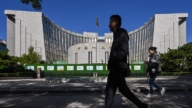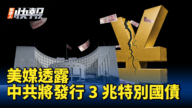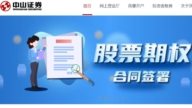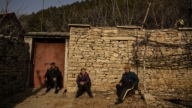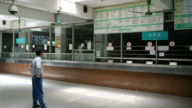【新唐人2013年09月03日讯】有关中国经济所谓“奇迹”的话题,外界的探讨从未断过。东京大学副教授川岛博之,近期在接受日经BP社访谈时认为,在过去30年间,中国之所以实现了奇迹般的经济发展,其中,最主要的还是依靠让土地生钱的机制。但是,他认为,目前中国经济已经开始步入长期低迷。
9月1号,大陆《新浪财经》网站刊发了这篇采访文章。
川岛博之认为,在过去30年间,中国奇迹般的经济发展,除了依靠廉价劳动力,最具决定意义的,还是让土地生钱的机制。因为中国的土地基本都归地方政府所有。地方政府通过转让土地的使用权,尽情地扩大了收入,土地开发简直成了要什么来什么的“万宝槌”。
北京天则经济研究所副所长冯兴元:“九十年(代)财政体制改革以后,才开始财政收入集中到中央了,一大块,这样地方政府转向土地财政。从96年开始中国的城市化率,每年保持在比较高的水平,这里边土地财政才开始发挥重要的作用。”
台大经济系教授张清溪表示,中国的土地所有权主要有两种。
张清溪:“在城镇叫国有,在农村叫阶级所有,但都不是私人所有权。就是在中国土地都没有私有财产权。 一般的人只能有使用权。 如果房屋被拆掉的话,他就什么都没有,因为土地不是他的。”
张清溪指出,中共当局常常用各种方式把民众现有的房屋拆掉,以此来再次转让土地使用权,增加收入。虽然中共宣称拆掉会给补偿,但是有时补偿金也被政府官员贪污掉了。因此,造成的社会稳定问题,对中共政权是非常大的威胁。
2011年,《新京报》报导,中央农村工作领导小组副组长、办公室主任陈锡文表示,农民上访中涉及土地问题的比例约占40%。征地问题已经成为农村很尖锐的矛盾。
同年发生的广东乌坎村事件,就是由于村委会成员私下变卖土地问题,而引发的民间大规模维权抗争。
此外,川岛博之根据中国各省的城市面积等数据进行了推算,认为中国的土地使用费是265.7万亿元,这一数额相当于中国GDP的6倍。而一般来说,地价总额应当与该国的GDP相同,最多也只是2倍左右。所以川岛博之说,中国的土地价格处于泡沫状态。
而即使在对欧美出口减少的情况下,中共当局依然坚持争取8%增长的GDP“保八”方针。即使工业部门低迷、消费增长停滞,也要想尽办法拉动GDP。
因此,川岛博之观察发现,土地开发就成了地方政府唯一可走的路。但是,无视需求的荒唐开发,最终得到的却是一座座鬼城。支撑着这些开发的资金,就是靠如今出现了严重问题的“影子银行”筹措来的。
川岛博之估计,今后,开发计划夭折的情况还会不断浮出水面。
张清溪观察认为,金融问题是中共政权目前面临的非常大的危机,这和它过去有大量土地可以卖有关。而且因为土地是公有的,所以政府使用起来不仅没有效率,也没有考虑长期经营。
张清溪:“好地方卖完,你就没有土地,没有土地你就没有这个财源,因为土地只有一次性的。这个收入是很大笔,但是它一旦收完后就后继无力了。这就造成很多地方政府因为后来没有钱,它就开始用借贷。中国地方债是非常严重的。”
川岛博之认为,中共的地方政府已经不能再像过去那样挥动“万宝槌”。地方政府一旦收敛投资,中国经济必将急转直下。毕竟中国GDP增长大约一半靠的是投资。
采访/刘惠 编辑/王子琦 后制/李勇
China’s Economic Miracle Will Soon Pass
The outside world has never stopped talking about
China’s economic miracle.
Hiroyuki Kawashima, associate professor, Univ. of
Tokyo, recently told Nikkei BP in an interview that
in the past 30 years, China’s miraculous economic
achievements are due to reliance on the land as if it were a money tree.
However, he believes the current Chinese economy
has begun to enter a long-term slump.
On September 1, Mainland’s Sina Finance website
published an article with this interview.
Hiroyuki Kawashima believes that in the past 30 years,
in addition to relying on cheap labor,
China’s economic miracle is definitely due to
land development having become a money tree.
China’s land is owned by local governments.
Through transferring land’s user rights,
local governments enjoy expanded income,
and land development has simply
turned into a magic wand.
Feng Xingyuan, deputy director of Beijing Institute
of economics: “During the economic reform in the 1990s,
revenue went back to the central government.
A huge chunk of local revenue became land revenue.
After 1996, China’s annual urbanization rate
was kept at a rather high level and the land revenue began to play an important role."
Zhang Qingxi, professor of National Taiwan University:
“There are two main owners of China’s land.
The state owns all the towns and the classes (masses)
own all countrysides.
However, there is no private ownership of land in China.
Average citizens can only have the right to use the land.
If his house is demolished, he would have nothing
because the land is not his."
Zhang Qingxi pointed out that the Chinese authorities
often use various ways to remove existing homes in order
to re-transfer land user’s rights and increase revenue.
Although the Chinese Communist Party (CCP) declared
that home owners will be compensated, sometimes,
the compensation falls into the pockets of corrupt officials.
Therefore, it has turned into a social stability issue,
which seriously threatens the CCP.
In 2011, Beijing News reported that Chen Xiwen, deputy
head of the Central Rural Work Leading Group, said that
among farmer petitioners, 40% have land issues.
The land issue has become a very sharp conflict in villages.
In the same year, Guangdong Wukan incident was
caused by village committee members’ privately selling land, triggering a massive civil rights protest.
In addition, Hiroyuki Kawashima provided data
for China’s urban areas of all provinces, saying that
China’s land user fee is 265.7 trillion yuan,
equivalent to six times the GDP of China.
In general, the total premium should be the same
as a country’s GDP or twice as much at most.
So, Hiroyuki Kawashima said that China’s land prices
are in a bubble state.
Even in the case of reducing exports to Europe and America,
the CCP still insists on striving for 8% GDP growth.
The CCP will find ways to maintain a high GDP even though
the industrial sectors are in the doldrums and consumption growth stays stagnant.
Hiroyuki Kawashima found that the land development
has become the only option for local governments.
Ignoring the absurd land development has brought about
ghost towns everywhere.
Fundings for those developments came from the so-called
shadow banks, which have become a serious problem.
Hiroyuki Kawashima estimates that in the future,
more development plans will continue to be aborted.
Zhang Qingxi believes that the financial issue, currently
a big crisis for the CCP, has much to do with the sale of land.
Since the land is publicly owned, the government
uses it inefficiently and without a long-term plan.
Zhang Qingxi: “After coveted areas sell out, you have
no more land to sell and no more revenue from the land.
It is a one-time, big profit deal.
That is the reason why local governments were
so short of money and had to borrow money later.
Local government debt is a very serious problem in China.”
Hiroyuki Kawashima believes that the CCP’s local
governments can no longer wave their magic wands.
Once local governments decrease their investments,
China’s economy will nosedive.
After all, half of the China’s GDP growth depends
on investments.


